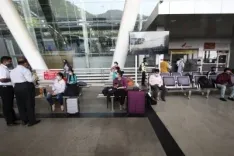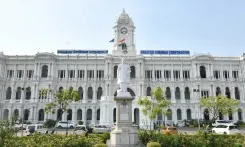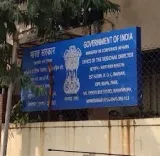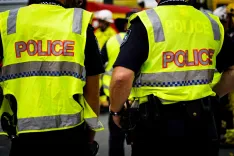Why Did the Sessions Court in Chhattisgarh Deny Bail to Kerala Nuns?
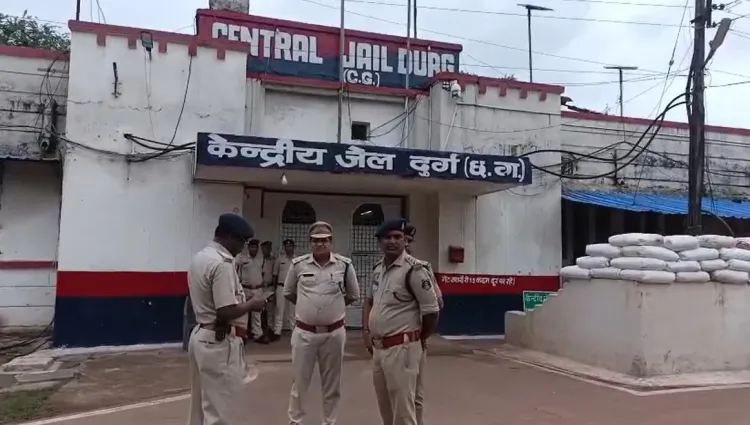
Synopsis
Key Takeaways
- The Kerala nuns have been denied bail by a Chhattisgarh sessions court.
- There are serious allegations against them, including human trafficking.
- Protests have erupted in Kerala, with political leaders demanding their release.
- The case is now directed to the NIA-designated bench at the High Court.
- The nuns are known for their humanitarian work.
Raipur/Thiruvananthapuram, July 30 (NationPress) In a significant setback for two nuns from Kerala currently imprisoned in Durg jail, a sessions court on Wednesday denied their bail request, instructing the petitioners to bring their case before the NIA-designated bench at the Chhattisgarh High Court in Bilaspur.
The court determined that it did not possess the jurisdiction to adjudicate the bail request, as the case falls under the National Investigation Agency (NIA) Act. Despite the strong arguments put forth by the nuns’ legal counsel, the plea was dismissed.
Just prior to the hearing, a group of Bajarang Dal activists assembled outside the court, vocally protesting against the nuns and accusing them of attempting to obscure a case they claim involves human trafficking and coerced religious conversion.
The individual who filed the complaint is Ravi Nigam, represented in court by a team of five lawyers.
Advocate Jaiswal, present during the proceedings, stated that the sessions court lacked the authority to hear the case and advised the petitioners to approach the High Court instead. Following this announcement, Bajarang Dal activists outside the court celebrated.
This matter has been raised in both houses of Parliament, although it has not been officially discussed. Previously, all MPs from Kerala had protested outside Parliament.
The Congress-led UDF MPs subsequently met with Union Home Minister Amit Shah to brief him on the situation.
Prominent lawmakers, including AICC general secretary K.C. Venugopal, have sought a meeting with Prime Minister Narendra Modi to discuss the issue further.
Venugopal stated in the Lok Sabha that this is a critical issue for Kerala, urging the Centre to intervene as the Chief Minister of Chhattisgarh is not acting in a responsible manner.
“I spoke in Parliament advocating for the immediate release of Sister Vandana and Sister Preethi, members of the Assisi Sisters of Mary Immaculate, who were violently attacked by Bajarang Dal activists in Durg and subsequently arrested by police without justification. Instead of upholding the Constitution, the Chhattisgarh CM is legitimizing the mob narrative that has taken the law into their own hands for a hateful agenda. The Prime Minister and Kerala BJP profess their newfound affection for Christians, but in reality, they harbor animosity toward minorities,” Venugopal posted on X.
Earlier in the day, a delegation led by CPI(M) politburo member Brinda Karat, including MPs A.A. Rahim, K. Radhakrishnan, and Jose K. Mani, visited the nuns in jail. Karat condemned their arrest as a blatant case of fabricated charges.
“The nuns are entirely innocent. This is a calculated attack on Christians. We demand their immediate release and the dismissal of the case,” she asserted.
Back in Kerala, both the ruling LDF and Congress-led UDF organized separate protests. Senior Congress leaders, including KPCC president K. Sudhakaran and Leader of Opposition V.D. Satheesan, marched to the Kerala Raj Bhavan, demanding urgent action.
“This is unacceptable. These nuns are recognized for their humanitarian contributions. The Centre must take decisive action,” stated Satheesan.
Later in the evening, Church leaders and members of the Christian community are expected to conduct a protest march to the Raj Bhavan.
The two nuns—Sister Preeti Mary and Sister Vandana Francis—are part of the Assisi Sisters of Mary Immaculate, a congregation within the Syro-Malabar Church located in Alappuzha district. They had been working at a hospital in Agra.
On July 26, while escorting three women from Narayanpur district in Chhattisgarh to Agra for jobs as kitchen helpers in a convent, the nuns and a companion, Sukhman Mandavi, were intercepted at a railway station by Bajrang Dal activists and subsequently taken into custody by police.
The nuns were presented before a local court and placed under judicial custody. With the sessions court now directing the matter to the High Court, the nuns will remain incarcerated until further notice.



